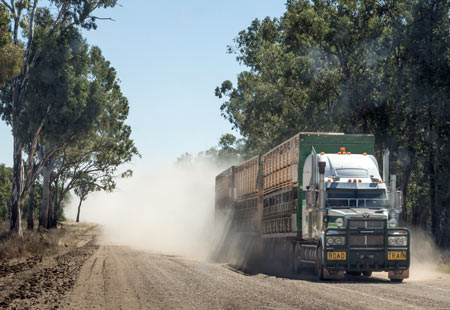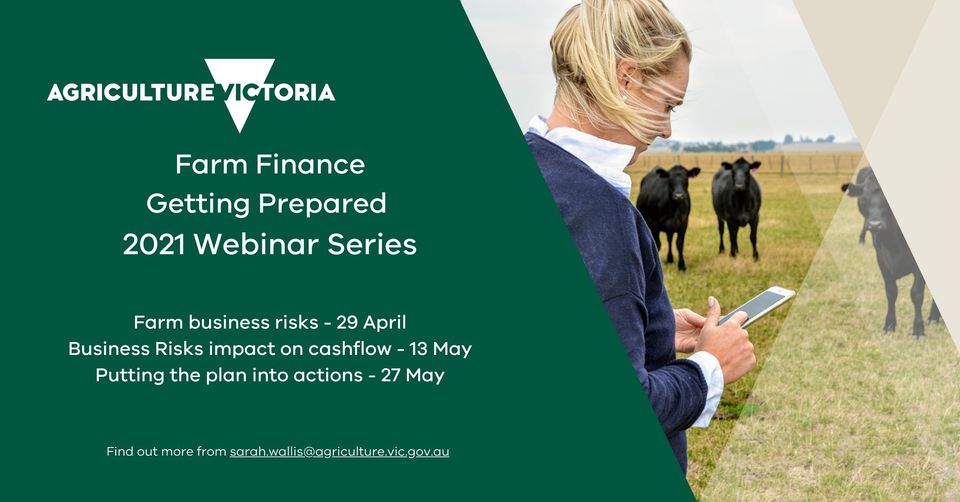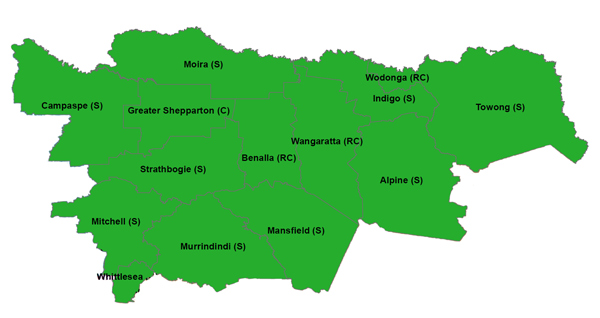
Regional Round-up is a monthly newsletter providing an overview into the environmental and business conditions affecting farmers and rural businesses in the Goulburn Valley and North East Victoria.
Dairy
Goulburn Valley dairy farmers have been battling with higher water prices, lack of rain, purchasing higher volumes of feed, and unfavourable milk prices. At this point, next season doesn’t look terrific either given low water in storage, low water allocations, expectations of a lower milk price next year and hay/grain prices likely to increase as demand rises.A recent workshop suggested 2/3 of one consultant’s GV dairy farmers would be cash flow negative. A lower milk price and increased costs, combined with very difficult seasonal conditions, are putting pressure on marginal farmers in particular.
Pricing update:
Milk prices have remained constant with some small seasonal increments but are still below $5.60. Murray Goulburn announced on 29/02/2016 that it would hold to the $5.60 price with no step-ups. MG announced a profit of $10m for the first half of the year but this was down $5m on the same period last year. MG CEO Gary Helou pointed out that the first half of the year saw a continued decline in Chinese imports of dairy commodity ingredients and an ongoing Russian embargo on dairy imports. (Country News 1/3/2016)
One advisor has discussed the possibility of a reduction in the milk price for the 2016-17 season with his dairy benchmarking group.
The Global Dairy trade index initially fell 2.8% on 16 Feb after a 7.4% fall on 2 Feb. The average Global Dairy price for February is 55% below the 2014 average price and 26% below the 2015 average price.
Chopper prices have been favourable so herds may be culled to capacity – however, there are fewer opportunities to create a future cash flow utilising this option.
Cropping/Sheep
After good January rainfall, growers endured a very hot dry February, significantly lowering soil profiles. Again this is not a great concern at this point but it will emphasise the importance of good autumn rains.Wheat and canola prices continue to fall, with wheat down $30-40 per tonne since December and canola down about $50. An upturn in price doesn’t seem likely any time soon with prices more likely to drop rather than increase in the short term.
The hay market appears to be holding at $240-250/t (pasture), $190-240/t (cereal); $300-340/t (lucerne) delivered. The Goulburn Valley is still holding quantities of hay (some not so great in quality). Lower Tasmanian stocks have created premium prices in that state and farmers may source from the mainland if supply tightens.
More grain has been stored this season than normal (mainly because most thought prices would rise after harvest, because “they always do”), and this has now become a very expensive decision. A significant number will have to sell their stored grain over the next month or so, no matter the price, as money will be needed to fund the next crop.
The outlook for prices for next season’s crop is not looking positive at this stage, so good rains for the growing season will be even more important.
The price of lambs is steady but slightly below this time last year, with wool prices again easing for the month. Large round bales of cereal hay are still present in many stubble paddocks.
Horticulture
Stonefruit harvest is nearly complete. Some growers experienced large quantities of small fruit mainly due to lack of thinning.Prices for some growers with secondary fruit have reduced. Supermarkets are accepting/buying some hail-damaged fruit from orchardists.
Beef
February was a very dry and hot month with rain less than half the monthly average. There is no significant chance of rain in the next couple of weeks, consequently many farmers seem to be feeding out large quantities of hay much earlier than usual.Whilst there is minimal pasture feed, many have ample stored fodder so feed is not a widespread concern at this stage.
Despite the dry spell cattle prices have continued to hold up with, in fact, another small increase. Buyers from the North continue to see Victoria as the best place to buy the cheapest and best quality cattle. Not sure how long prices will hold up for if the dry stretch continues over next few weeks.
Beef prices remain strong although there has been some indication of softening prices in the last week of February.
The Eastern Young Cattle Indicator reached 605.75c per Kg but has eased back to 601c per Kg (carcase weight). This is bringing live weight prices to and over the $3 per Kg mark.
Irrigation
Storage levels in Lake Eildon are at 40% against 60% last year. The Hume is holding 33% (against 38% LY) and Dartmouth 44% (against 78%LY) (GMW resources storage levels website).GMW announced no increases in this year’s allocation for the Goulburn and Murray systems on 01/03/2016. High reliability water share determinations remain at: Murray system 100%, Goulburn 90%, Campaspe 64%, Loddon80% & Broken 26%
GMW have also released 2016/17 scenarios which indicate that allocations are likely to be low or nil for the initial months of the season unless there are average or better rainfall events in the catchments.
Water prices averaged $210 for February (Temporary purchase water).
High Reliability water shares have averaged $2500 for February. Low reliability shares traded for $250 in January but fell to $200 in February. This was possibly due to rain in late January and also the publication of the 2017 seasonal outlook. Low reliability shares are useful for farmers carrying over water when they don’t hold high reliability shares. (Refer Vic Water Register).













